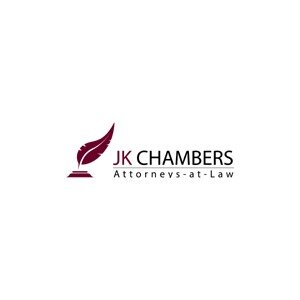Best Corporate Governance Lawyers in Sri Lanka
Share your needs with us, get contacted by law firms.
Free. Takes 2 min.
Or refine your search by selecting a city:
List of the best lawyers in Sri Lanka
About Corporate Governance Law in Sri Lanka
Corporate governance in Sri Lanka refers to the set of rules, practices, and processes by which companies are directed and controlled. It determines the distribution of rights and responsibilities among different stakeholders, such as the board of directors, management, shareholders, and other interested parties. Good corporate governance is essential for building investor confidence, promoting transparency, and ensuring long-term sustainability of businesses.
Sri Lanka has made significant strides toward strengthening corporate governance through legal reforms, adherence to international best practices, and the introduction of voluntary codes. Both public and private companies are increasingly expected to comply with these standards to ensure accountability and integrity within business operations.
Why You May Need a Lawyer
Corporate governance issues can be complex and may have significant legal, financial, and reputational implications. Here are some common situations where you may require legal help in the field of corporate governance:
- Establishing or restructuring a company and setting up governance frameworks
- Resolving conflicts between shareholders, directors, or management
- Ensuring compliance with statutory governance obligations and regulatory requirements
- Drafting and reviewing corporate policies, codes of conduct, and board charters
- Advising on directors' duties and liabilities
- Investigating or responding to allegations of misconduct or breaches of duty
- Representing clients in regulatory investigations conducted by authorities
- Assisting with annual general meetings, extraordinary general meetings, and related disclosures
- Advising on related party transactions and avoidance of conflicts of interest
- Guidance for cross-border transactions and compliance with international standards
Local Laws Overview
Corporate governance in Sri Lanka is primarily governed by the Companies Act No. 7 of 2007, which outlines the roles, responsibilities, and duties of directors, shareholders, and other stakeholders. Additionally, public listed companies must adhere to the Listing Rules of the Colombo Stock Exchange (CSE) and the Code of Best Practice on Corporate Governance issued by the Institute of Chartered Accountants of Sri Lanka.
Some of the key aspects of local laws relevant to corporate governance include:
- Board structure and composition, including independent directors and gender diversity recommendations
- Directors' legal duties, such as duty of care, good faith, and avoidance of conflicts of interest
- Mandatory disclosure requirements to promote transparency and accountability
- Protection of minority shareholders and enforcement of shareholder rights
- Audit committee establishment and oversight of financial reporting
- Regulations regarding related party transactions and approval processes
- Requirements for annual and extraordinary general meetings
- Reporting obligations to the Registrar of Companies and relevant regulatory bodies
- Company secretarial duties and maintaining statutory records
- Whistleblower protections and mechanisms for reporting irregularities
Frequently Asked Questions
What is corporate governance and why is it important in Sri Lanka?
Corporate governance involves the systems and processes used to direct and control companies. It is important in Sri Lanka as it encourages ethical business conduct, protects stakeholder interests, attracts investment, and supports economic development.
Who sets corporate governance standards in Sri Lanka?
The primary standards are set by the Companies Act, the Colombo Stock Exchange through its Listing Rules, and the Institute of Chartered Accountants of Sri Lanka via the Code of Best Practice on Corporate Governance.
Are corporate governance rules mandatory for all companies?
Certain aspects are mandatory, especially under the Companies Act, while public listed companies must comply with additional obligations under CSE Listing Rules. Private companies are encouraged to adhere to best practices but may have fewer obligatory requirements.
What are the main duties of company directors in Sri Lanka?
Directors are legally required to act in good faith, exercise care, skill, and diligence, avoid conflicts of interest, and always act in the best interest of the company and its shareholders.
How are minority shareholders protected?
Local laws contain provisions to prevent oppression of minority shareholders, allow them to petition courts in certain circumstances, and ensure fair treatment in major company decisions.
What is an audit committee and is it compulsory?
An audit committee is a subcommittee of the board responsible for overseeing financial reporting and internal controls. For public listed companies, an audit committee is compulsory under the CSE Listing Rules.
What are related party transactions and how are they regulated?
Related party transactions involve dealings with individuals or entities related to the company, such as directors or their families. These transactions are strictly regulated and often require board and sometimes shareholder approval, with mandatory disclosures.
Can directors be held personally liable for company misconduct?
Yes, directors can be held personally liable for certain breaches of duty, misconduct, or illegal acts, including financial penalties and disqualification from holding directorships in the future.
How can governance disputes be resolved?
Disputes can be resolved through mediation, arbitration, or by seeking redress in the courts, depending on the nature of the dispute and the relevant contractual or statutory provisions.
Does Sri Lankan corporate governance law cover environmental and social responsibility?
While not always mandatory, there is a growing emphasis on environmental, social, and governance (ESG) factors, and many companies voluntarily adopt policies to address these responsibilities.
Additional Resources
For further information and guidance on corporate governance in Sri Lanka, the following resources and organizations can be helpful:
- The Registrar of Companies - The main regulatory authority for company registration and compliance
- Colombo Stock Exchange (CSE) - Issues Listing Rules and provides guidance for listed companies
- Institute of Chartered Accountants of Sri Lanka (CA Sri Lanka) - Publishes the Code of Best Practice on Corporate Governance
- Securities and Exchange Commission of Sri Lanka (SEC) - Regulates capital market activities and ensures investor protection
- Ceylon Chamber of Commerce - Offers information and support for businesses seeking to improve governance practices
- Bar Association of Sri Lanka - Directory of qualified lawyers specializing in corporate law
Next Steps
If you need legal assistance in corporate governance matters in Sri Lanka, consider the following steps:
- Identify your specific governance issue or area of concern
- Gather all relevant documents, such as company articles, board meeting minutes, or correspondence
- Reach out to a qualified corporate lawyer or law firm experienced in Sri Lankan corporate law and governance
- Schedule an initial consultation to discuss your situation and receive guidance on the way forward
- Follow your lawyer's advice regarding compliance steps, dispute resolution, or implementation of governance improvements
- Stay updated on regulatory changes and participate in relevant training or seminars to enhance your understanding of corporate governance
Taking prompt and informed action with professional legal advice can help safeguard your company's interests and ensure adherence to corporate governance best practices in Sri Lanka.
Lawzana helps you find the best lawyers and law firms in Sri Lanka through a curated and pre-screened list of qualified legal professionals. Our platform offers rankings and detailed profiles of attorneys and law firms, allowing you to compare based on practice areas, including Corporate Governance, experience, and client feedback.
Each profile includes a description of the firm's areas of practice, client reviews, team members and partners, year of establishment, spoken languages, office locations, contact information, social media presence, and any published articles or resources. Most firms on our platform speak English and are experienced in both local and international legal matters.
Get a quote from top-rated law firms in Sri Lanka — quickly, securely, and without unnecessary hassle.
Disclaimer:
The information provided on this page is for general informational purposes only and does not constitute legal advice. While we strive to ensure the accuracy and relevance of the content, legal information may change over time, and interpretations of the law can vary. You should always consult with a qualified legal professional for advice specific to your situation.
We disclaim all liability for actions taken or not taken based on the content of this page. If you believe any information is incorrect or outdated, please contact us, and we will review and update it where appropriate.
Browse corporate governance law firms by city in Sri Lanka
Refine your search by selecting a city.

















